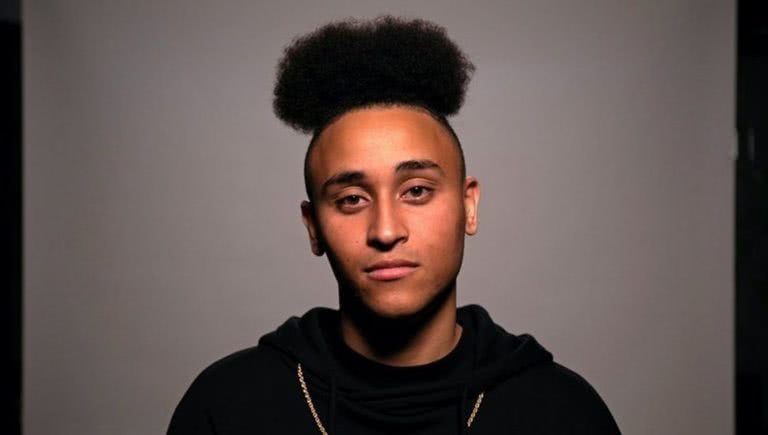Last month, Sydney based artist JamarzOnMarz — real name James Emmanuel— started a petition calling on the NSW Minister of Education, Sarah Mitchell, to make uniform policies that discriminate against students’ natural Afro hair illegal.
JamarzOnMarz started a change.org petition, demanding a change in policies “that make it hard to be Black.” The petition has amassed over 20,000 signatures — including backing from music-industry peers Jen Boyce (of Ball Park Music), Tuka (of Thundamentals), Cry Club, Alphamama and Temgazi.
In Early July, Emmanuel penned an open letter on Huffpost, that saw the artist recall an incident where he was forced to remove twist-braids following a family trip to Nairobi Kenya. The artist explained that the disciplinary figures at his school labelled the “extreme hairstyle” unacceptable.
“In my eyes, the braids complied with the uniform rulebook,” writes Emmanuel. “They were above the collar, above the ears, neat, short and sensible. I felt defeated and now insulted, realising my cultural identity (my Afro in its natural state and its corresponding protective styles) could not be embraced without being outlawed as ‘extreme.’”
The musician highlighted that the language used to describe his natural textured hair —“inappropriate” “extreme” “unorthodox”— is indebted in microaggressive racism.
“Whether my Afro is out or in a protective style of braids or cornrows, twists, buns or dreadlocks, it is a direct link to my heritage. My hair is my culture, and ultimately my identity,” he wrote.
Emmanuel cited a recent case of Cook Island student Cyrus Taniela, who was threatened with expulsion from his private school for his long hair, incited the realisation that he was forced to shave his head, “to the requested number 1 or 2”, to meet “subjective white standards of presentability.”
Love Music?
Get your daily dose of metal, rock, indie, pop, and everything else in between.
This realisation led to Emmanuel realising the glaring inequality between students of African diaspora, and their non-black peers.
“Theres level[s] of self-expression Black students were, and still are denied,” he shares.
“I want NSW’s Anti-Discrimination Act 1977 amended to expressly protect Black students from inequitable uniform policies and grooming codes, that hinder their culture and identity. This would mean, the requested cutting of Afro-textured hair in certain circumstances, and the banning of protective styles (like braids, cornrows, plaits) would constitute a discrimination on the grounds of race. Pursuant to s 7 & s 17 of the ADA”.
This month, a craven letter sent on behalf of NSW Education Minister Sarah Mitchell claimed that there should be no problem with discrimination because racial discrimination in public schools is “already against the law.”
Clearly, that law is failing.
“Please be assured that the NSW Department of Education rejects all forms of racism,” the letter read.
“It is committed to the elimination of racial discrimination in public schools – including direct and indirect racism, racial vilification and harassment – in all aspects of the learning and working environment.
“Its schools have trained anti-racism contact officers and provide timely and professional responses to complaints regarding racism.”
Emmanuel has taken to Instagram, highlighting his dissapointment over the response he received to the petition.
“I’m aware of these anti-discriminatory policies but they failed to protect me and continue to fail many others like me,” he wrote.
“Racism isn’t always overt vilification or harassment; it can be institutionalised under the guise of grooming codes.”
The response has not dampened Emmanuel’s spirit, and he is determined to keep petitioning until all schools are held accountable for their discriminatory grooming codes.
“For that to happen, we need to make more noise,” he concludes.
The musician revealed that he is considering taking his former high school to the NSW Civil & Administrative Tribunal for anti-discrimination.
You can sign the petition here.

































